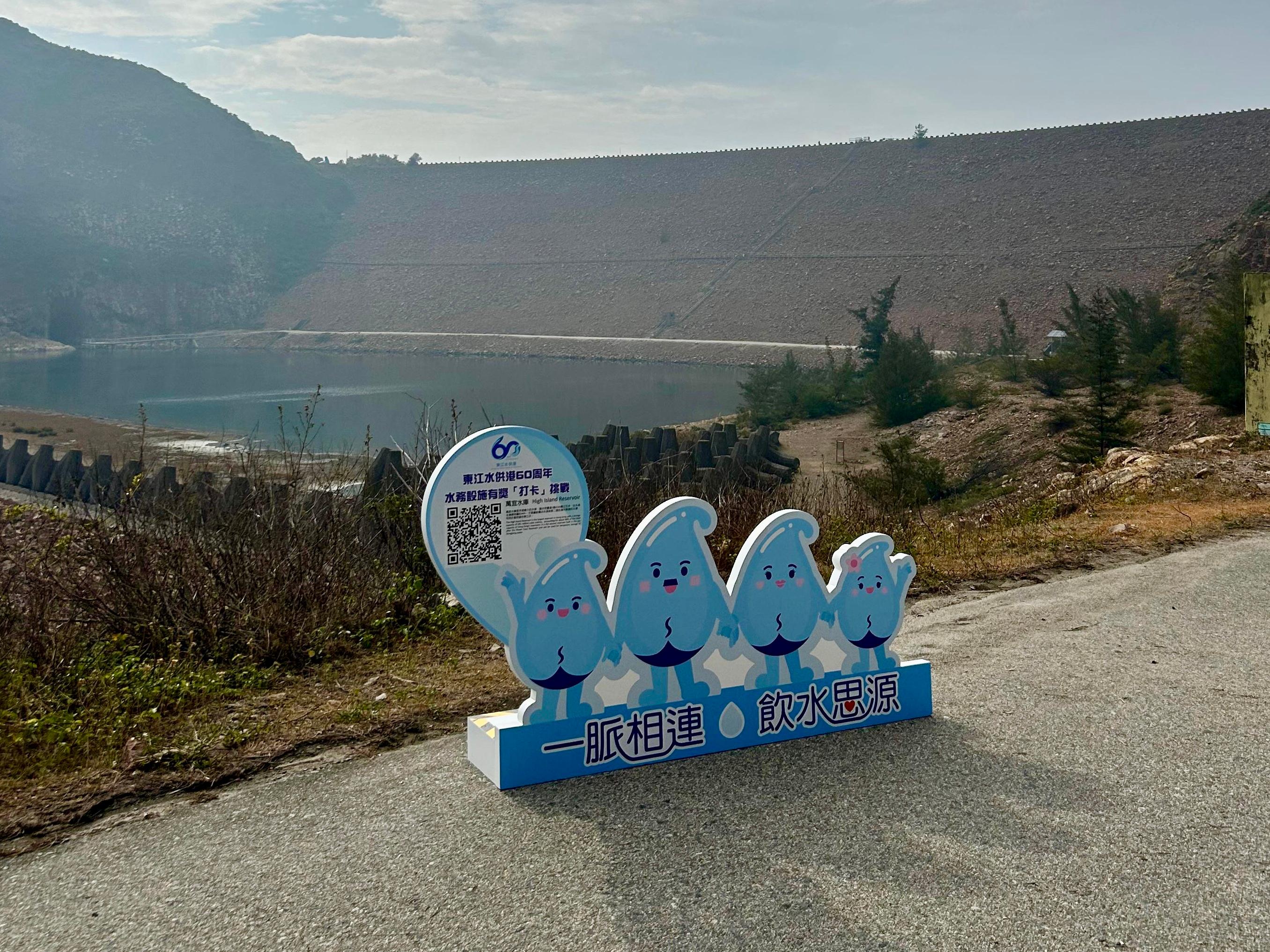WSD’s Photo-taking Challenge on 60th Anniversary of Dongjiang Water Supply to Hong Kong starts tomorrow (with photos)
This year marks the 60th anniversary of Dongjiang water supply to Hong Kong. To commemorate this remarkable milestone with members of the public, the Water Supplies Department (WSD) is holding a Photo-taking Challenge on 60th Anniversary of Dongjiang Water Supply to Hong Kong from tomorrow (January 28) to May 18 with an aim to encourage members of the public to visit various related waterworks facilities to deepen their understanding of the Dongjiang water supply system, and also to learn from history and be grateful for the care rendered by the country. Participants who complete designated photo-taking tasks will have a chance to receive a limited edition souvenir. Members of the public are welcome to take part in the challenge.
The challenge covers six waterworks facilities, namely the Sheung Shui Dongjiang water main, the Plover Cove Reservoir, the Tai Lam Chung Reservoir, the High Island Reservoir, the Tin Shui Wai H2OPE Centre and the Shenzhen Reservoir. A section of the Sheung Shui Dongjiang water main is decorated as a bamboo with cute pandas and a WSD mascot named Water Save Dave dressed in a panda costume attract the public to take photos.
To participate, members of the public only have to take photos at the abovementioned waterworks facilities, share the photos in a public post on their Facebook or Instagram accounts and add designated hashtags and tags, and then email the screenshot of the post with the original photo to dj60@wsd.gov.hk. The challenge comprises eight challenge periods. The first 250 participants in each period to complete the above photo-taking challenge steps will receive a limited edition Water Save Dave family blind box doll. A set of four cute Water Save Dave family blind box dolls has been specially designed and produced to commemorate the 60th anniversary of Dongjiang water supply to Hong Kong, making the items exceptional collectibles. For details and rules of the challenge, please visit the event website.
Moreover, two special thematic guided tours of the Dongjiang water supply under the WSD’s “Excursion with Water Save Dave” visiting programme are being organised starting from October last year to March this year as one of the celebration activities for the 60th anniversary of the Dongjiang water supply to Hong Kong. Participants completing the two guided tours are also eligible to redeem a limited edition Water Save Dave family blind box doll. With the public’s great support and participation, the two thematic tours with 4,400 spaces has been fully taken up.





